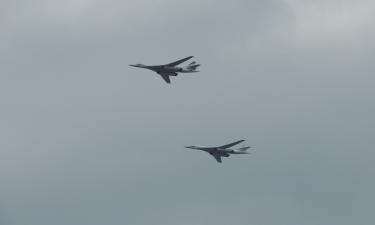Russia and World Markets: Mutual Integration?

Much has changed since that time.Within this period Russian companies have started large-scale integration of Russian capital into Western markets. Norilsky Nickel has purchased the controlling interest of Steel Water Mining, the US platinum and palladium monopolist. Lukoil has acquired a Getty Petroleum filling stations network in the eastern part of America.
The acquisitions were welcomed by US authorities. Russians are allowed to purchase enterprises that are on the verge of bankruptcy everywhere in the world. Russian oligarchs are satisfied with this situation as they have much spare money, and there is no source in Russia to invest in.
During his visit to the US, Russia President Vladimir Putin took part in the presentation of a new filling station belonging to the Lukoil network. So, expansion is gaining steam. This in its turn agrees with the integration policy declared by President Putin.
Within the past year, Russian companies have started mass purchase of enterprises in former Soviet republics. Today, Russian businessmen have established control not only over the industrial potential of friendly Armenia but also over almost all oil and gas assets of the Baltic republics which are rather unfriendly toward Russia, and over the power system of anti-Russian Georgia and other infrastructures.
This expansion allowed former Soviet republics to create the United Economic Area. It is also important that neither the US nor the European Union have objected to this Russian expansion.
In response, Russia has started receiving long-expected foreign investments. The European Bank for Reconstruction and Development and the World Bank have made their policy more active with respect toward Russia. The presence of foreign capital in almost all branches of Russia’s economy is increasing; foreigners buy shares of small-scale and medium-sized oil companies or banks and sometimes buy up even entire companies.
The culmination of the backward capital movement is the merger of British Petroleum and Russia’s Tyumen Oil Company (TNK). President Putin was present while documents on the merger were being signed in London. Nobody doubted that the deal would overshadow the merger of YukosSibneft with an American oil giant. Yukos Chief Executive Officer Mikhail Khodorkovsky is interesting neither for western capital nor for the Russian authorities as an independent player. Does it not look like integration?
Probably the level achieved by mutual integration of stocks is not yet so high as all parties expect it to be. This is probably explained by actual political and economic barriers. We should keep in mind that some financial circles in the EU countries do oppose this kind of mutual integration. The interests of Russia and Europe intersect in the countries belonging to the former Soviet block and considering incorporation into the European Union.
One thing is for sure today: these countries will become EU members with considerable presence of Russian petrodollars in their economies. Thus, it is not a surprise at all that Russian and American authorities are protecting the integration process from all kinds of politics and economic risks.
At the same time, Russia's government elite treats the protection process in its own way. For the time being, this is the result that actually matters today. It may be positive in some respects that many people abroad say that the KGB has something to do with this process, that people are speaking about revision of the privatization results and democracy curtailing.
This is probably the explanation why the integration process is done according to traditions of the special services. At a time when oligarchs are being persecuted in Russia and Russian multi-millionaires are traveling European capitals and promising to devote their efforts to creation of a truly civil society in Russia, their money may rather easily be allowed to Europe and the US.
The present-day situation is particular from any side. First of all, people like the struggle against oligarchs, which will help President Putin to stay on the presidential position longer. Second, the excessive political ambitions of Russian oligarchs are developing into foreign economic ones. Together with acquisition of assets, Russian oligarchs obtain reputation, international status and access to the international financial and raw material resources.
Third, money profiteered over the period of reforming are receiving the legal status in the West which was impossible in 1996-1998; oligarchs themselves can go abroad to escape different risks. Finally, the increase of foreign capital share in Russia's economy heightens political and economic stability;it also makes Russia's further policy predictable and observing the interests of the key players on the international scene. This is what the leading transnational corporations have been wishing to obtain from Russia for a long period already.
As for Russia, its participation in the economies of developed countries guarantees decision making and the account of interests of the national ruling class. Thus, in 10-15 years, Russia may turn into the largest and most loyal junior partner of the G7 countries. And it does not matter if it is to be called a liberal empire, as the ideologists of liberal reforms see it, or a new USSR, as leaders of former Soviet republics believe. It is more important that none of the scenarios supposes a return to the old times.
Subscribe to Pravda.Ru Telegram channel, Facebook, RSS!





